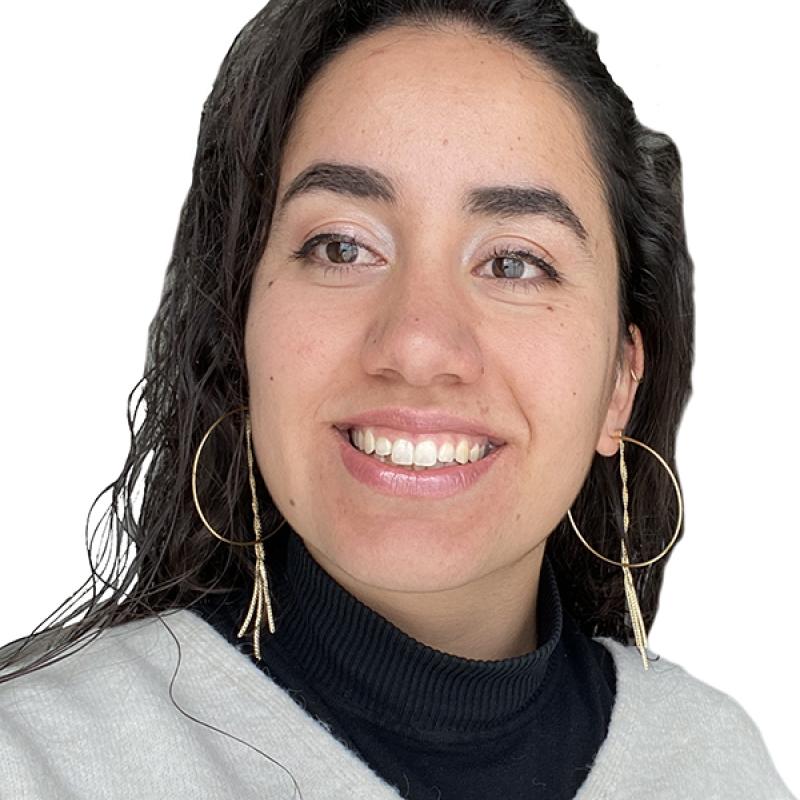Breadcrumb
Belén Muñoz Zurita (MPP 2024) arrived at the School from Chile, bringing with her a technical background in electrical engineering and experience delivering transformative energy policies at national and international level, with a strong belief in how policy shapes people's lives.
‘I wanted to be an engineer because I wanted to build solutions for people,’ she explains.
Working at the Ministry of Energy in Chile, she focused on energy transition strategies, energy market reforms, regional interconnection and crisis management – something she saw as fundamental to national development. ‘Energy is known for being one of the drivers for development, so I decided to work in providing affordable and clean electricity in people’s homes.’
As Belén’s career grew, she started to see how her technical knowledge could work hand in hand with political strategy. She reflects: ‘I didn’t want to assume the practices around me without question. I wanted to develop sound, bespoke policies. That's why I decided to apply for the Master of Public Policy (MPP).’ Coming to Oxford, Belén expected a traditional, theory-focused experience – but the MPP has offered much more:
I expected the course to be very academic, but it is very human-centred.
This human-centred approach to leadership was reinforced by the many visiting speakers to the School. One figure who has made a particular impression on Belén so far is Margrethe Vestager, the former Vice President of the European Commission and World Leaders Fellow at the School. ‘She has a distinctive style of politics. She recognises the human behind the politics and how to show people different sides of yourself yet still be strategically strong,’ Belén reflects. Seeing a different model of leadership helped her to reimagine her own future. ‘I didn’t always see myself as a politician the way we usually see them, but I could see myself as a politician like her.’
Among her favourite classes is Politics of Policymaking, which explores the processes of how policy decisions are made. She explains, ‘building a mental map that helps me to navigate the different political scenarios, identify actors, relations and expected consequences has been of great value.’
Outside the classroom, the diverse perspectives and backgrounds of her classmates have been another major highlight. ‘I’ve got to see the many ways of coordinating different communities,’ she says. Discussions with peers have enriched her experience even further. ‘I’m grateful for all of the conversations in this collaborative environment. To learn more about other people’s passions and priorities helps me reflect upon my own.’ Cultural nights – a celebration of the diverse backgrounds and traditions of the student body – stand out as another memorable part of the MPP experience:
You really get to experience something unique. It is rare to have access to so many visions of the world so generously open for you.
Despite varying political opinions, she notes, the sense of shared humanity among the students remains strong.
Belén is a Luksic scholar, ‘As the first generation in my family to attend university, I’ve relied on scholarships throughout my education. Pursuing a master’s degree once felt out of reach,’ says Belén. ‘The Luksic Scholars programme opened doors I never thought possible. It’s thoughtfully designed, with strong support networks that truly meet our needs.’
This opportunity has helped to shape her path: ‘It’s helped me envision a future without limits and deepened my commitment to contribute to Chile and the world, wherever I am.’
After graduating, Belén plans to continue pursuing her work on energy transition. ‘I would like to keep building energy policy, engaging stakeholders and crafting strategies based on local and international cooperation’ she says. ‘I believe in energy transition for everyone, not just for one country. I want to see how we can do it together.’
For those considering applying to the MPP, Belén’s advice is clear. ‘You 100% need to do it. It has been an incredible academic experience and the most wonderful year. It is immensely enriching, if you really want to see a different world being created, the MPP is for you.’
She also stresses the importance of humility and openness:
The MPP keeps you humble, and it’s important to be humble in politics. The dynamics among students are centred in embracing the differences, and this teaches you to find varied pathways for making change.

